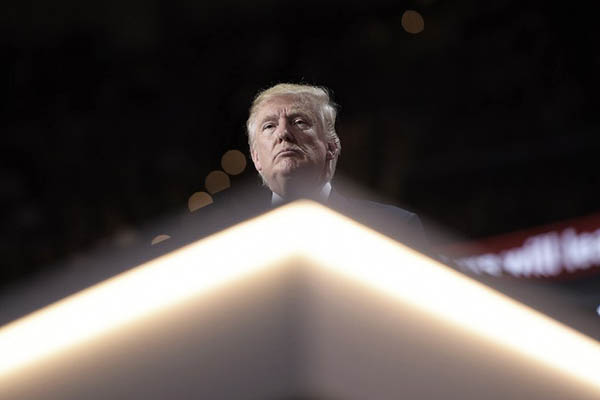
Brendan Smialowski—AFP
U.S. president-elect demands Havana make further concessions, threatening Obama’s outreach efforts.
President-elect Donald Trump on Monday threatened to end the U.S. thaw with Cuba unless Havana makes key concessions, potentially upending the historic rapprochement engineered by the White House, which insists the opening serves American interests.
Trump’s tough comments sparked a flurry of speculation about the incoming Republican administration’s policies regarding the communist-ruled island, and come after former leader Fidel Castro’s death on Friday.
“If Cuba is unwilling to make a better deal for the Cuban people, the Cuban/American people and the U.S. as a whole, I will terminate deal,” Trump said on Twitter. To the dismay of the White House, which wants the detente policy to continue, Castro’s death has pressed Trump to respond to an issue that almost certainly would have remained further down on his agenda.
Trump’s tweet landed just as Cuba began its weeklong farewell to the divisive Cold War icon. Hundreds of thousands of Cubans swarmed Havana’s iconic Revolution Square in a tearful and nostalgic tribute to “El Comandante.”
The tycoon-turned-world leader appeared to heap pressure on an arrangement that his fellow Republicans have long criticized as ceding too much to Havana without significant gains in return. Prominent Republicans have blasted Castro as a murderous tyrant since his death. Trump called Castro a “brutal dictator.”
But until the tweet, no one close to Trump had directly threatened to end the political opening announced in 2014 by Obama and his Cuban counterpart Raul Castro. Following the tweet, Trump’s communications director Jason Miller told reporters that the president-elect is “aware of the nuances and complexities” of the challenges facing Cuba’s people, and that he will address the issue “once he becomes president.”
“To be clear, the president-elect wants to see freedom in Cuba for the Cubans, and a good deal for Americans where we aren’t played for fools,” Miller added. “Our priorities are the release of political prisoners, return of fugitives from American law, and also political and religious freedoms for all Cubans living in oppression.”
White House spokesman Josh Earnest on Monday defended the thaw of Cold War animosity, saying that “after five decades of not seeing results, the president believed it was time to try something different.” He said dismantling the current policy, which has included the resumption of direct flights and a host of other measures, was “not as easy as one tweet might make it seem.”
Earnest also said Obama would not be traveling to attend Castro’s funeral, although he demurred on the question of who would lead the U.S. delegation.
Trump’s position on Cuba had shifted during his turbulent campaign. At first he spoke of his support for the reopening of diplomatic ties after decades of distrust.
But before the election, he was pledging to reverse Obama’s “one-sided” deal that he said only benefited the Castro government. “All of the concessions that Barack Obama has granted the Castro regime were done through executive order, which means the next president can reverse them, and that I will do unless the Castro regime meets our demands,” Trump said in September.
Trump’s team has said the outgoing Democratic administration made too many compromises with Havana—notably by easing the 1962 U.S. economic embargo—without receiving enough in return in areas like human rights, democracy and the move toward a free-market economy.
Trump at first only briefly addressed the Cuban revolutionary’s demise, in an inelegant tweet early Saturday—“Fidel Castro is dead!”—before issuing a longer statement. “Though the tragedies, deaths and pain caused by Fidel Castro cannot be erased, our administration will do all it can to ensure the Cuban people can finally begin their journey toward prosperity and liberty,” Trump said.
In October, just weeks before the election, Obama announced a directive formalizing a normalization policy with Cuba and unveiling a new round of loosened trade and travel rules, saying it was aimed at making the policy “irreversible.” But the changes could be reversed when a new administration takes office, senior officials conceded at the time.
